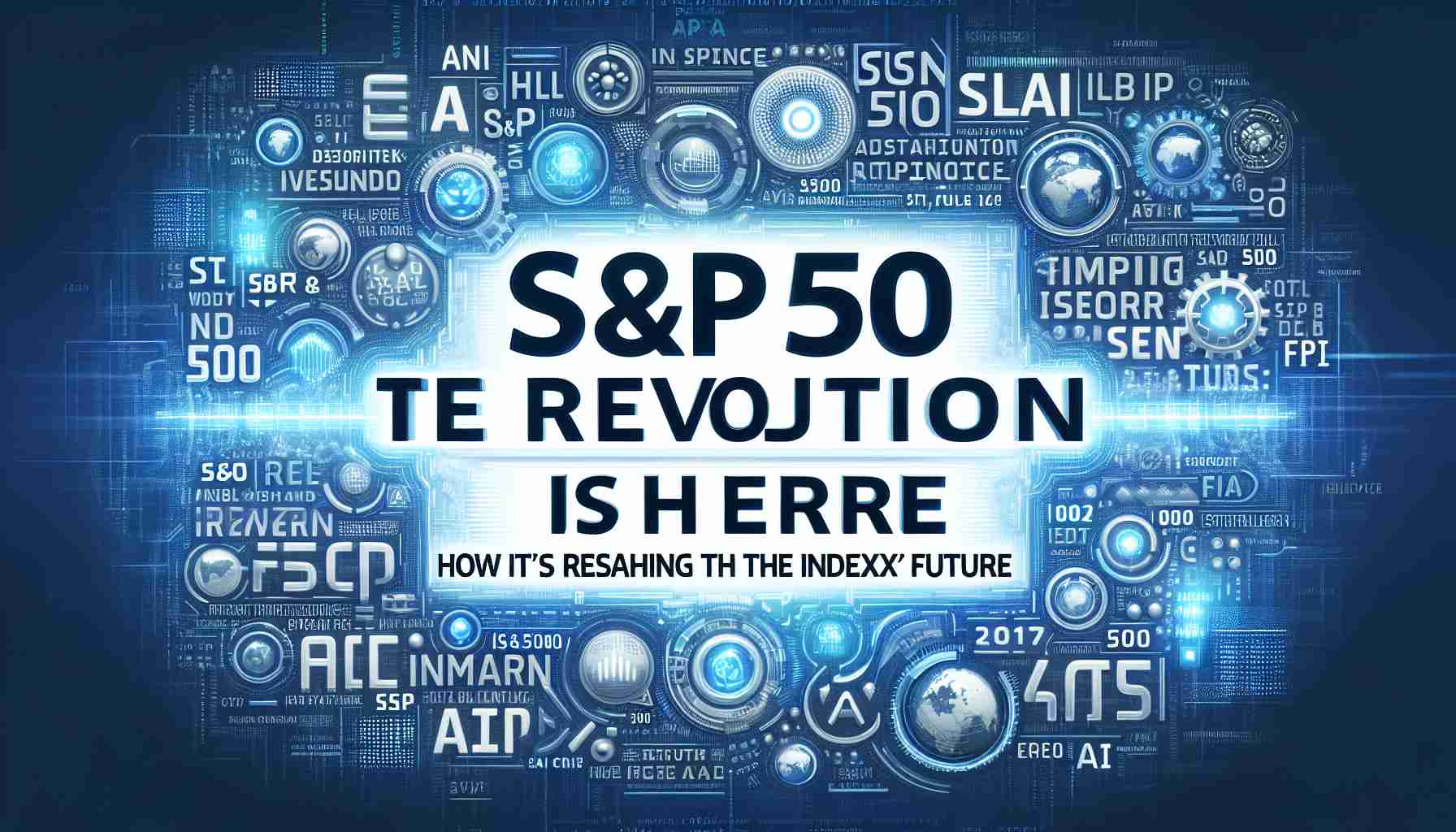- AI is becoming integral to corporate strategies, influencing the S&P 500’s structure and dynamics.
- Companies effectively integrating AI are likely to see increased productivity and profitability, affecting their valuations and index weight.
- AI-driven trading algorithms offer new market insights, potentially altering how companies are assessed within the index.
- The influence of AI introduces volatility, seen as an opportunity by investors, that may redefine the S&P 500’s makeup.
- Anticipating AI’s impact is crucial for both investors and companies in navigating future economic landscapes.
The S&P 500, an essential benchmark for American economic health, is witnessing a transformative phase as artificial intelligence (AI) begins to weave its way into corporate strategies and performance metrics. With tech giants and nascent startups embracing AI at an unprecedented pace, the index is poised to reflect this seismic shift in the coming years.
AI is not just a buzzword anymore; it is becoming a crucial factor in how companies innovate and compete. Organizations that adeptly integrate AI into their operations are expected to see enhanced productivity and profitability. This potential for growth could significantly impact their valuation and, subsequently, their weight in the S&P 500.
Moreover, AI-driven trading algorithms are also starting to influence how the market perceives these companies. These algorithms analyze vast datasets with unprecedented speed, offering insights into stock performance and market trends. As these technologies evolve, they could even redefine the parameters by which companies are included or weighted in the S&P 500.
The ripple effects of AI are inevitable and will lead to a dynamic restructuring of the index, introducing volatility that savvy investors might see as an opportunity. As AI becomes more integrated into business models, we could witness a new category of companies dominating the S&P 500—one that values innovation and adaptability as much as sheer financial performance.
The future of the S&P 500 is not just about responding to economic trends but anticipating the profound shifts AI and other technologies bring to the table. For investors and companies alike, understanding this new landscape will be crucial.
How AI is Revolutionizing the S&P 500: What Investors Need to Know Now
How is Artificial Intelligence Transforming the S&P 500?
Artificial Intelligence (AI) is driving a significant transformation within the S&P 500, reshaping corporate strategies and performance metrics. Companies that seamlessly integrate AI into their operations are likely to experience improved productivity and profitability. This uptick in performance can substantially influence their market valuation and, consequently, their weight within the S&P 500. Furthermore, AI-driven trading algorithms provide enhanced market insights and could redefine the criteria for company inclusion and weighting in the index. As the influence of AI grows, we anticipate a dynamic restructuring of the index, introducing a fresh category of companies that prioritize innovation and adaptability alongside financial performance.
What Are the Pros and Cons of AI Integration for S&P 500 Companies?
Pros:
1. Increased Efficiency: AI systems can automate repetitive tasks, freeing up human resources for more strategic activities.
2. Enhanced Decision-Making: AI’s ability to process large datasets quickly enables better-informed business decisions.
3. Improved Customer Experience: AI technologies like chatbots and personalized recommendations enhance user interaction and satisfaction.
Cons:
1. High Implementation Costs: Initial setup and integration of AI technologies can be expensive for companies.
2. Data Privacy Concerns: Handling vast amounts of data raises significant privacy and security challenges.
3. Job Displacement: Automation and AI can lead to workforce reductions as machines take over tasks previously done by humans.
What Are the Latest Trends and Predictions for the S&P 500 Amid AI Integration?
Trends:
1. Rise of AI-Centric Companies: Businesses that develop or heavily rely on AI technologies are gaining prominence and influence within the S&P 500.
2. Increased Market Volatility: As AI becomes more integrated, the market may experience increased volatility, presenting lucrative opportunities for savvy investors.
3. Shift in Valuation Metrics: Companies may be evaluated more on their AI capabilities and innovations rather than traditional financial metrics.
Predictions:
1. Tech Giants to Lead: Major technology companies leveraging AI are likely to dominate the S&P 500, continuing to set trends in business models and market strategies.
2. Expanded Index Inclusion Criteria: As AI tools revolutionize data analysis and business operations, the criteria for inclusion and weighting within the S&P 500 are expected to evolve significantly.
3. Increased Focus on Sustainability and Ethics: Companies will strive to balance AI innovation with sustainability and ethical considerations, affecting their long-term viability and standing in the index.
For more insights into market trends and economic forecasts, you may visit Bloomberg or MarketWatch.



















